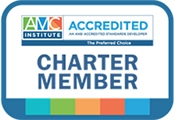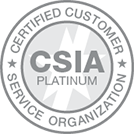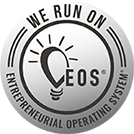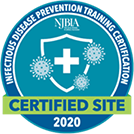As employers and voices of industries, associations are stepping up to advocate for mental health care
Addressing mental health care in the workplace isn’t new: in 2019, 79% of employers reported having an employee assistance program (EAP)—a catalog of employer-sponsored resources that include counseling and specialist referrals for a range of personal and health issues. EAPs address everything from child care to financial health, but lean heavily into mental health care, and are associated with decreased absenteeism and better employee relations.
However, with typically low utilization rates hovering around just 4.5% and perceived confidentiality issues, employees may not prefer their employer’s EAP as the robust mental health care resource it’s intended to be. With 1 in 5 adults (51.5 million people) in the United States experiencing mental illness in 2019 alone, according to the National Alliance on Mental Illness, mental health care is still a critically needed resource.
Enter professional and trade associations, which play a vital role in both advocating for and supporting the mental health of workers in their respective industries.
Connecting with Members
Associations just getting into the idea of supporting their members’ mental health care needs might not know where to start. For AH Client Partners, the Wound, Ostomy, and Continence Nurses SocietyTM (WOCN®) and the Commission for Case Manager Certification (CCMC), it started with a survey to understand just what their members and constituents were experiencing.
Particularly during the height of the pandemic, health care workers were experiencing burnout at record levels. Both the WOCN Society and CCMC understood that their members and constituents were going through an incredibly difficult time, but wanted to understand exactly what they were experiencing and how they could support them.
Both organizations sent out surveys to get a feel for what was impacting their communities. For the WOCN Society, members reported being burned out because of overworking while others reported stress due to job loss and underemployment.
CCMC discovered that the pandemic was putting a significant amount of stress not only on health care workers, but also on professional case managers, who were now being pulled to frontline work. Some respondents lost their job while others struggled with food insecurity. Others were grieving the loss of loved ones to the virus.
“It became very apparent that case managers where being hit hard,” said Katherine (Katie) Capps, the Founder and President of Health2Resources, CCMC’s marketing and public relations strategic partner. “There were some painful responses we got back in the open-ended questions, really painful responses.”
With surveys in hand, WOCN and CCMC focused on what they needed to build to bring some comfort to their membership.
Programs to Pause and Empower Your Mind
The WOCN Society focused on creating a suite of resources to uplift members, who might turn to their WOCN community to unplug and unwind after a mentally taxing day at work.
“We felt like we needed to do something to revitalize them,” said Megan Ramirez, Director of Marketing and Communications for the WOCN Society. “We wanted to make sure that our members and the greater healthcare community realized that the WOCN Society saw them; we see what they're going through, we hear them, and we want to be able to support them.”
The WOCN Society developed its enPOWERment Center on the Society’s website. The Center serves as a single destination for free resources like podcasts, webinars, articles, and more for members and non-members to use after a difficult day on the job.
The content in the Center is grouped into three categories that address professional development, self-worth, and mental stamina:
- The Head has professional development resources to challenge a user’s mind, sharpen their skills, and advance their practice.
- The Heart contains supportive resources to connect users with peers and remind them of their value.
- The Hands provides education resources to help support careers, advance practice skills, and elevate clinical knowledge.
While the WOCN Society’s approach to supporting the mental health of the healthcare community came in the form of online resources, CCMC launched a broader campaign to reach constituents who might need to be reminded to take a moment for themselves amid the stress of their work climate.
CCMC’s Push Pause campaign included two components: free pre-recorded educational offerings like academic support and mental health and stress support and a video campaign of 13 brief, supportive videos that guide case managers through a moment of relaxation.
“We knew that they weren't going to listen to anything 20 minutes long, or use self-help techniques,” said Capps. “This was set up to be that moment of fresh air for them once a week.”
The video series featured professional motivational speakers chosen because of their own diverse inspirational personal stories that could be quickly impactful in a meaningful way.
The Push Pause videos were shared on CCMC’s social media platforms, inserted in 360 Certification workshops, and featured as commercials for several events and activities that CCMC offers—all in an effort to spread the word to the case management community that they are worth taking a break, taking a breath, and pushing pause for their mental health.
“The Push Pause campaign is an investment in our workforce,” said MaryBeth Kurland, CAE, Chief Executive Officer for CCMC. “We talk about self-care, all the time, we talk about taking care of yourself and your patients or clients. This is us walking the walk not just talking the talk.”
While the campaign took a short break during the summer, it was such a hit that CCMC just released a new series of Push Pause videos in conjunction with National Case Management Week.
Investing in Members
Both the WOCN Society and CCMC saw their programs as much more than just a set of resources or another communications campaign—both were examples of organizations recognizing the mental health needs of professionals working in their industries.
“What is interesting about both of these campaigns is that both organizations could have had a very different message of ‘let’s do this!’ or ‘we’re strong and will persevere!’ and while there were elements of that, they just acknowledged that people were actually struggling,” said Sarah Black, AH’s Director of Content and Creative, who works with a wide range of associations on content strategy and development. “They leaned into what the need really was, which is to normalize talking about the stress that their communities were under and the fact that some people might need additional support.”
The resulting sense of community and support is valued by members and constituents, who may not feel that other resources are adequate or truly understand what they’re experiencing. For leaders, the feeling that you’ve done something to contribute to a deep need in your professional community is even more meaningful.
“I think others on the team will agree that it’s the campaign we're most proud of, because it's just such a give-back to our community” Kurland said.
Gain more insights into association innovation! Listen or watch AH’s new bite-sized podcast, the “Red Chair Podcast.” Made for association and non-profit leaders, the six-episode series focuses on trends, topics, and issues facing associations today.




